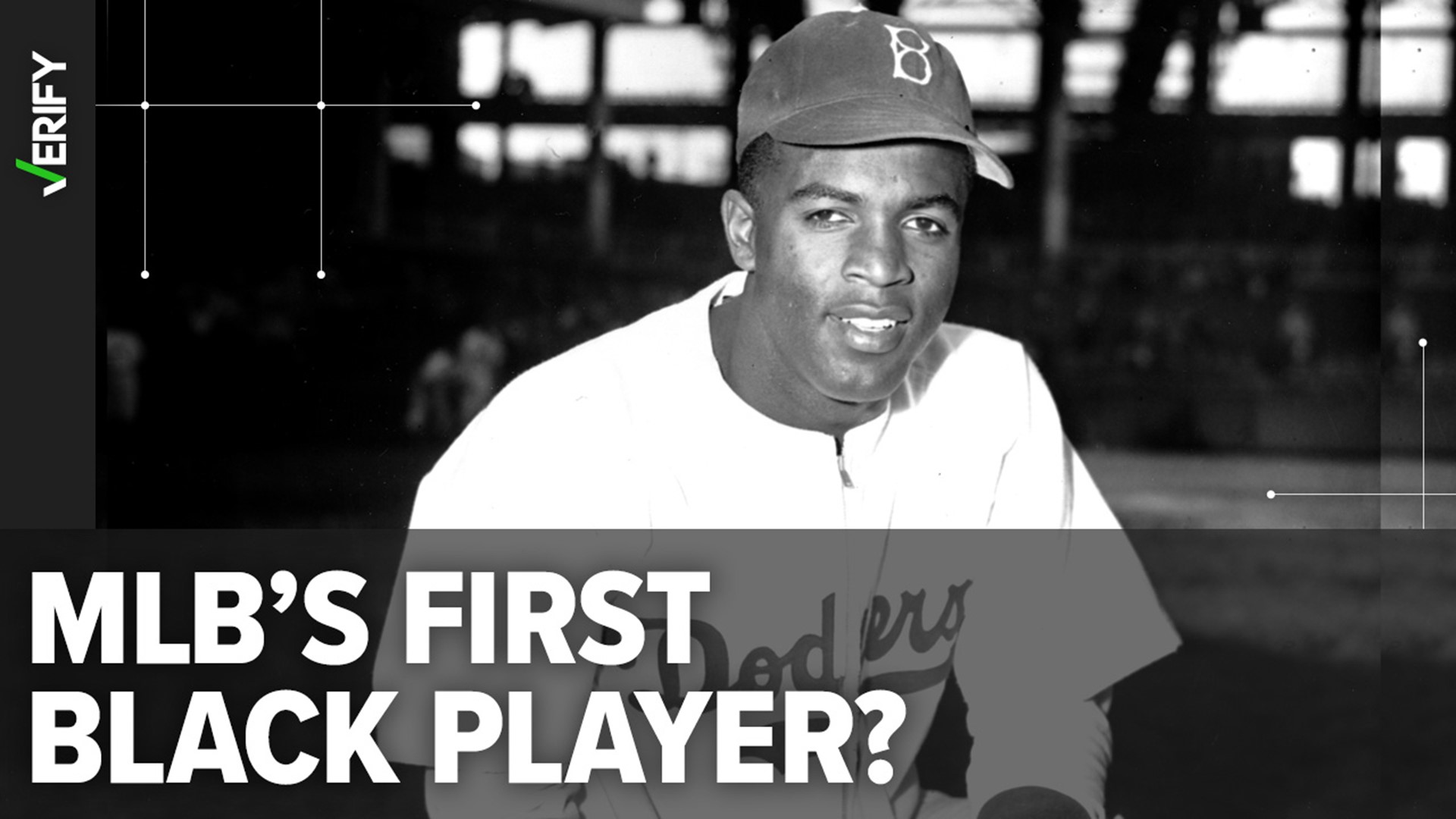Black history and accomplishments are celebrated all throughout February for Black History Month. That includes the celebration of Jackie Robinson, who famously broke Major League Baseball's color barrier on April 15, 1947.
In 2022, journalist and poet Michael Harriot tweeted that “Jackie Robinson was NOT the first Black Major League Baseball player.”
THE QUESTION
Was Jackie Robinson the first Black Major League Baseball player?
THE SOURCES
- Major League Baseball (MLB)
- Society for American Baseball Research (SABR)
- Library of Congress
- National Baseball Hall of Fame
- Lemelson-MIT, a youth inventor development program ran by the Massachusetts Institute of Technology School of Engineering
THE ANSWER
No, Jackie Robinson was not the first Black Major League Baseball player. However, he was the first Black player in the modern-day majors, following his breaking of the “color line” in 1947.
WHAT WE FOUND
There are three Black men who played in the major leagues between 1879 and 1884, according to the Society for American Baseball Research (SABR). They played at a time when Major League Baseball consisted of six different leagues including the still-active National League.
The three Black players who played in the majors in the 1800s were: William Edward White, who played one game in 1879; Moses Fleetwood Walker, who played 42 games in 1884 and Weldy Walker, who played five games in 1884.
Prior to the addition of seven Negro Leagues to the list in 2020, Major League Baseball officially recognized six leagues as “major leagues.” Those leagues were: the American Association (1882-91), Union Association (1884), Players’ League (1890), Federal League (1914-15), and the still active National League (since 1876) and American League (since 1901).
Even though the modern-day MLB — an alliance of the NL and AL led by a National Commission or commissioner — didn’t form until 1903, the three Black players from the 1800s are officially considered Major League Baseball players.
White played a June 21, 1879 game for the National League’s Providence Grays, SABR says; he filled in for an injured player while still in college. He was biracial; his parents being a white man and a Black woman, who had been the white man’s slave.
Because of this, White is the first known Black man to play Major League Baseball. But he was not the first “openly” Black man to play; White “passed” as a white man. In the 1880 census, and in future censuses, he identified himself as white, and there’s no evidence anyone challenged him on this. SABR says there is “no known contemporary record,” except for census reports, that “contains reference to his race.”
The first “openly” Black man, and thus the first to experience racist backlash, to play in the majors was Moses Fleetwood Walker, according to SABR. “Fleet,” as he was called, joined the Toledo Blue Stockings in 1883, while the team was still in a minor league. He played catcher for the team, and was praised by the local media and his team for his play en route to their minor league title.
But even in the minors, Fleet was targeted by segregationists.
In August 1883, Adrian "Cap" Anson, a future hall-of-famer, leading voice of the movement to segregate baseball and player-manager of the Chicago White Stockings, announced that his team would not play an exhibition game against Toledo if it kept Fleet in the lineup, says Lemelson-MIT, a youth inventor development program ran by the Massachusetts Institute of Technology School of Engineering. SABR says Toledo’s manager called Anson’s bluff, forcing the latter’s team to play to secure his interest in ticket sales.
The Blue Stockings joined the American Association the following year, allowing Fleet to make his major-league debut in 1884. Fleet and his team were the targets of increasingly hostile and violent attempts to keep him out of games.
He played his last game Sept. 4, 1884 and was eventually released on Sept. 22, 1884 because of an injury. Although he continued to play minor league baseball until 1889, Fleet never played in another major league game. No other Black man played in the majors until Jackie Robinson did in 1947.
During their 1884 campaign, the Toledo Blue Stockings also played with Fleet’s brother, Weldy Walker, for four games. Weldy made his major-league debut July 15, 1884 to fill in for the team’s injured players, SABR says. He never played alongside Fleet, who was injured at the time, during his five-game career, and Weldy was released sometime after his final major league game Aug. 6, 1884.
In July 1887, the International League, the minor league which later became baseball’s top minor league division, banned future contracts with Black players, the Library of Congress says. This established baseball’s “color line,” which segregated professional baseball until Jackie Robinson made his debut.

